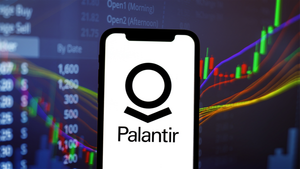Parshall Lawn Care Experts has established a comprehensive lawn care initiative, expanding its commitment to environmentally responsible landscape management practices in alignment with Traverse City's documented sustainability commitments. The initiative addresses growing regional demands for lawn care solutions that support water quality protection and carbon emission reduction objectives.
The lawn care program emphasizes natural soil management and native plant integration while monitoring synthetic fertilizer applications. This approach reflects broader industry trends toward sustainable landscape practices and addresses documented environmental concerns associated with traditional lawn maintenance methods. Learn more at https://markets.financialcontent.com/gafri/article/pressadvantage-2025-9-26-parshall-lawn-care-experts-launches-revolutionary-fall-lawn-recovery-program-for-northern-state-homeowners.

Emily Weitzel, a Parshall Lawn Care Experts client, commended the attention to detail given by their professional team. Noting the satisfaction in the clearing of her property, and the well-maintained aspects of the work done to preserve the aesthetic appeal desired.
Environmental Context and Industry Drivers: Traverse City has established itself as a regional environmental leader through documented sustainability initiatives. The city achieved 100% renewable energy for municipal operations in 2020 and committed to community-wide carbon neutrality by mid-century, with an interim goal of 40% renewable energy by 2025. The Traverse City Commission and municipal utility partner Traverse City Light & Power (TCLP) have prioritized environmental stewardship as a strategic community objective.
Research from peer-reviewed sources demonstrates measurable environmental impacts from lawn care practices. According to the Michigan Department of Environment, Great Lakes, and Energy (EGLE), proper lawn maintenance—particularly through organic methods—can reduce nitrogen runoff, decrease herbicide and pesticide dependency, and improve water infiltration. These practices are especially significant in the Great Lakes region, where 42 million people depend on Great Lakes waters for drinking water and where lawn care practices directly affect watershed health.
Organic Versus Synthetic Approaches: Scientific research illustrates the environmental trade-offs between organic and synthetic lawn care methodologies. A study published in 2025 by researchers at Cornell University found that less-intensive management of turfgrass results in greater abundance and diversity of soil-dwelling organisms, which are essential to long-term soil health and nutrient cycling.
Research indicates that synthetic fertilizers, while providing immediate nutrient availability, can reduce long-term soil fertility. According to peer-reviewed studies, synthetic fertilizers can diminish populations of beneficial soil microorganisms—organisms that naturally cycle nutrients and improve soil structure. One gram of healthy soil contains between 6 and 100 million microorganisms that break down organic matter to provide essential nutrients and soil stability. When excess synthetic nitrogen is applied, these microorganism populations decline, requiring continued chemical applications to maintain lawn health.
Organic fertilizers operate through different mechanisms. Rather than providing immediate nutrient availability through chemical release, organic amendments improve soil quality by encouraging microbial activity. This approach creates a self-sustaining soil ecosystem where nutrients become available as soil organisms process organic matter—a process that reduces nutrient runoff while building long-term soil resilience.
Water Quality and Great Lakes Protection: Water quality protection represents a central environmental concern in the Great Lakes region. Traditional lawn care practices contribute to nitrogen and phosphorus runoff, which can create harmful algal blooms and compromise aquatic ecosystems. Michigan has enacted the Fertilizer Law, which restricts phosphorus-based fertilizer applications in both residential and commercial contexts, reflecting state-level commitment to reducing nutrient runoff.
The Lawn to Lake Program, supported by the U.S. Environmental Protection Agency's Great Lakes Restoration Initiative and implemented through regional partnerships, has documented the effectiveness of transitioning to natural lawn care practices. Since its inception, the program reports helping 318,066 residents transition to natural lawn care and reducing weed and feed product use by an estimated 1,021,453 pounds.
Native Plant Integration and Biodiversity: Parshall Lawn Care Experts' organic initiative incorporates native plant species adapted to northern Michigan growing conditions. Native plants provide documented ecological benefits. According to research from Michigan State University Extension and the University of Michigan, native plant species reduce irrigation requirements by 30-50% compared to non-native alternatives, lower maintenance demands, and support native pollinator populations. Approximately 30% of Michigan crops and 90% of Michigan wild plants rely on pollinator activity, making native plant establishment significant to regional agricultural productivity.
Industry Growth and Market Response: The lawn care and landscaping industry has experienced measurable growth in demand for sustainable practices. According to industry analysis, the U.S. lawn care market is projected to reach $21.08 billion by 2027, with significant growth driven by consumer demand for environmentally responsible services. Research indicates that nearly 70% of lawn care companies are integrating sustainability-focused practices into their operations, reflecting market recognition of environmental concerns and consumer preferences.
Alignment with Regional Environmental Goals: Parshall Lawn Care Experts' organic initiative demonstrates private sector engagement with community-level environmental objectives. As Traverse City and the broader Great Lakes region prioritize renewable energy adoption, water quality protection, and carbon emission reduction, landscape service providers have the opportunity to contribute to these goals through practice modifications. Learn more at https://parshalllawncare.com/lawn-management-traverse-county.
The company's expansion of organic lawn care services complements existing municipal sustainability efforts and represents private sector support for environmental stewardship practices. This approach aligns with documented research indicating that systemic adoption of natural lawn care methods can meaningfully reduce environmental impacts associated with traditional landscape maintenance.
Parshall Lawn Care Experts provides lawn maintenance, tree care, and landscape services to residential and commercial clients in Traverse City, Michigan, Grand Traverse County, and the surrounding areas. The company operates in the Grand Traverse County service area and maintains service operations consistent with regional environmental standards.
###
For more information about Parshall Lawn Care Experts, contact the company here:
Parshall Lawn Care Experts
Corey Parshall
231-252-0864
info@parshallturfcare.com
Parshall Lawn Care Experts
19679 Honor Hwy
Interlochen, MI 49643
Phone: (231) 252-0864
Email: info@parshallturfcare.com




